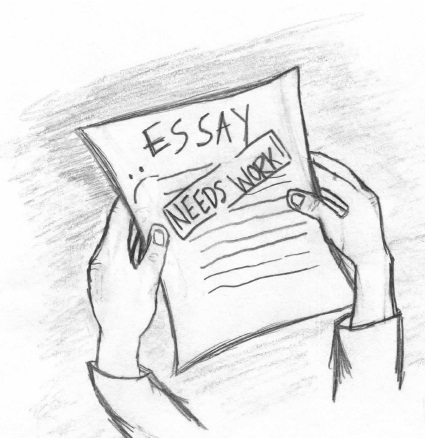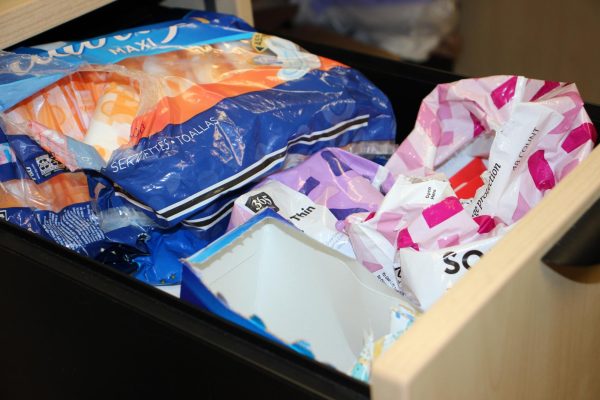Write station

Art by Author
Friend to some, foe to others, there is a seemingly insidious creature that lurks in high schools everywhere.This creature is most commonly found roaming near humanities classrooms, rearing its head to a summons from the nearest teacher. Evolving in species from the expository to research to analytical, this often dreaded creature is known to students as “The Essay.”
For some, writing just comes naturally. Teacher says write a five-page paper analyzing the differences between romantic and metaphysical poetry? No problem!
But then there are those who would not consider writing to be their forte. Several English classes were surveyed at random, and when students were asked how confident they were with their ability to write for school on a scale from “very confident” to “please help!” the majority of students were “kinda confident” or “meh.” Some even responded, “please help!” For some students, writing, be it creative, informative, or analytical, is just a struggle– a struggle that reflects itself in major grades, exam scores, standardized tests and even college acceptance decisions.
The reality is, writing ability is a high school survival skill that will likely be needed throughout life. This is why AP English teacher Adrien Alsobrook and Creative Writing teacher Christopher Robbins have been contemplating the idea of a creating a writing lab at White Station.
“A lot of students here are just really struggling with writing,” said Alsobrook. “Because the teachers are so swamped with huge numbers [of students], we need to have time to work with [students] one on one,” “We have math [tutoring] one on one and I think maybe we could do something similar in a writing lab.”
Alsobrook and Robbins envision a place where students could go during lunchtime or study hall (and possibly after school if the manpower were acquired), with computers and a number of qualified English students as volunteer tutors. It would have to be sponsored by a teacher who would be available to help.
The goal of such a lab, according to Alsobrook, would be to “give kids confidence in their writing ability by helping them learn protocol with one on one instruction and to help them be comfortable with how to put their own ideas on paper.”
“[The students] don’t have to feel like they have to plagiarize. The writing lab is not to write a paper for him/her but to help them write it. It’s a slow process,” Alsobrook said.
As for making this writing lab a reality, it is not only up to the administration’s approval, but also to student interest. Many students said they would be interested, as they are given writing assignments weekly and would like the extra help, but would not be willing to stay after school for a writing lab due to transportation issues and other time conflicts.
“The option of the program may help some, but the time available for students might not allow for any significant progress,” Gerald Williams (12) said.
When asked about the possibility of a writing lab, some students simply seemed apathetic to their academic writing skills. “I don’t exactly have the best writing ability, but I get it done,” one student said. Motivation to write well also seems to depend on whether or not students actually enjoy the assignment.
“I think subjects matter, my writing abilities depend on how much I like a subject,” another student said.
Regardless of personal drive to improve academic writing, the incentive to make good grades on assignments still plays a major factor in whether or not a student would seek extra writing help. Student motivation and administrative involvement are both key things that could make this idea into a reality in the near future.
Your donation will support the student journalists of White Station High School. Your contribution will allow us to purchase equipment and cover our annual website hosting costs.





































